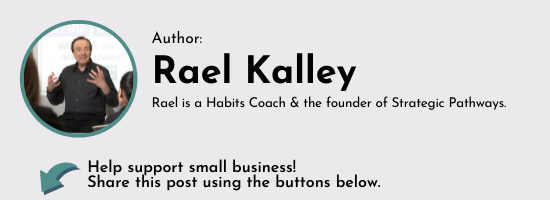As the new year approaches, this is often a time for many people to gaze into the future and set ambitious goals. These goals are set with good intentions and a fervent belief that they will be met and, perhaps, even exceeded.
There is a lesson to be learned in the setting of goals and it is one that is often overlooked and frequently unknown.
Most often when we set goals the focus is on results: I will quit smoking; I am going to get in the best shape ever; I will read one book each month. These are all worthy endeavors and, for many of us, accomplishing them could well change the trajectory of our lives.
Unfortunately, many independent studies conducted over decades have repeatedly shown that most goals go unfulfilled and many people simply reach a point where they stop setting goals as their own history has convinced them that setting goals today simply leads to disappointment and frustration tomorrow.
The lesson to be learned is this: each time we set out to accomplish something we have not accomplished before we need to start with the firm understanding that we cannot get there by continuing to do what we are currently doing. Henry Ford taught us this lesson more than one hundred years ago when he explained that “if you always do what you’ve always done, you’ll always get what you’ve always got.”
The first step in setting an ambitious goal is to determine, with great clarity, what specifically it is that must do differently and to then set out to change our thinking in order to accommodate, and successfully integrate, these changes.
Change does not come easily. Shifting behaviors means adopting new habits and the old ones – the actions we are changing from – seldom passively surrender to the new ones – the ones we wish to change to.
Traditionally success is measured by results and yet I have long been an advocate of measuring activities as they are the precursor to results and the more diligently we measure the quality of our activities (frequency, intensity, duration) the easier it becomes to stay the course and to deploy course-corrections when necessary.
Several years ago, I worked with a sales team whose manager judged each team member solely on the volume of sales closed. He was constantly chiding the team to do more and openly berating those who did not – or could not – meet his expectations.
I encouraged the sales manager to shift his focus away from completed sales and to instead measure sales activities over which both he and the individual salesperson had absolute control.
And it didn’t take long for their sales to increase and for each salesperson to close more deals. The sales manager was delighted with the results and to this day continues to manage his team’s growth by working with each member to improve the quality, frequency, intensity and duration of everything they do rather measuring them solely on the number of closed sales.
He realized that a salesperson can do everything to perfection and still not close the sale. A salesperson can never control whether the customer will say yes or no. What salespeople always do is exercise absolute control over their activity which means that managing that activity ultimately will determine the quantity and value of their sales.
This principle never changes regardless of which areas of our lives we are focusing on. What we do determines what we get and as we begin to look ahead and plan for 2020 will be wise to heed the powerful words of Jim Rohn: “Your life does not get better by chance. It gets better by change.”
Till we read again.

